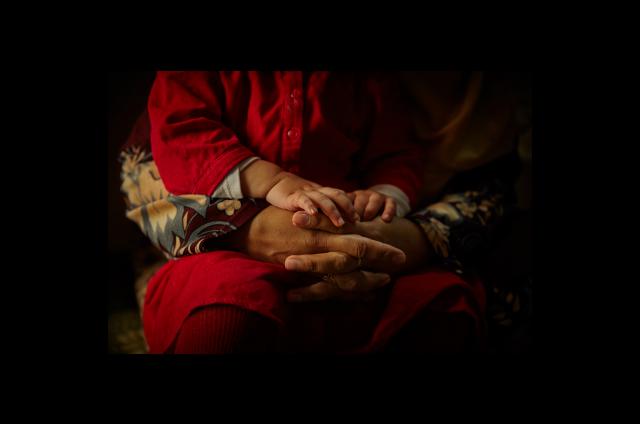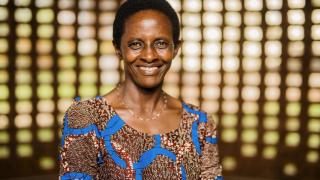Sameera
Sameera
When war broke out in her country, Sameera and her family had no choice but to flee.
War took everything from us, including my home and my husband’s job. With six children, life became difficult. Horrible. I often sat at home with nothing to do, living with depression. I felt helpless and hopeless.
Frequent fights with my husband made my life worse. Life for our family also worsened as we had no steady access to shelter or food, so we fled to the Kurdistan Region of Iraq and settled in a refugee camp. There, I experienced constant anger, deeper depression, and stress.
My friends in the camp encouraged me to join the Women for Women International training programme. At first, I was hesitant, but ultimately, because of our situation, I decided to join.
Session after session, I realised how important the training is.
I saw its value and how women in the programme were able to grow out of the depression they’d been living in. Interacting with other women made my life easier and helped me find calm. I realised I am not the only one dealing with difficulties.
The Stronger Women, Stronger Nations programme helped me get out of the house, get outside, and see what other refugee women experience.
The friendly environment at the training centre and connections I made with other women changed my life.
I’m able to manage my anger and stress by asking for support from my trainers. The stipend helps me buy food for my family and save.
Through the training, I have learned good sewing skills, and my plan after graduation is to work as a tailor for my family and my community. I’m thankful to Women for Women International for providing a programme like this for refugees. I wrote a letter to my Stand With Her supporter, and it made me happy to know that women across the world care about me.
For reasons of security and privacy, we are using a photo of a different Women for Women International graduate to represent the woman in the story.
READ MORE STORIES
Christine
subtitle:
Christine knows what survival means. She was pregnant with her first child during the 1994 genocide in Rwanda. Faced with economic challenges after the death of her husband, she needed more than survival, she needed a future for her family.
Fazila
subtitle:
In July 1995, men and boys were massacred in Srebrenica during the genocide in Bosnia. Fazila lost male relatives but knew she had to rebuild her life for the sake of her daughter and the women in her community.
Regina
subtitle:
I will continue mobilising other women in the community in utilising the lessons I have learned, and I hope many more of them will be part of the training.



